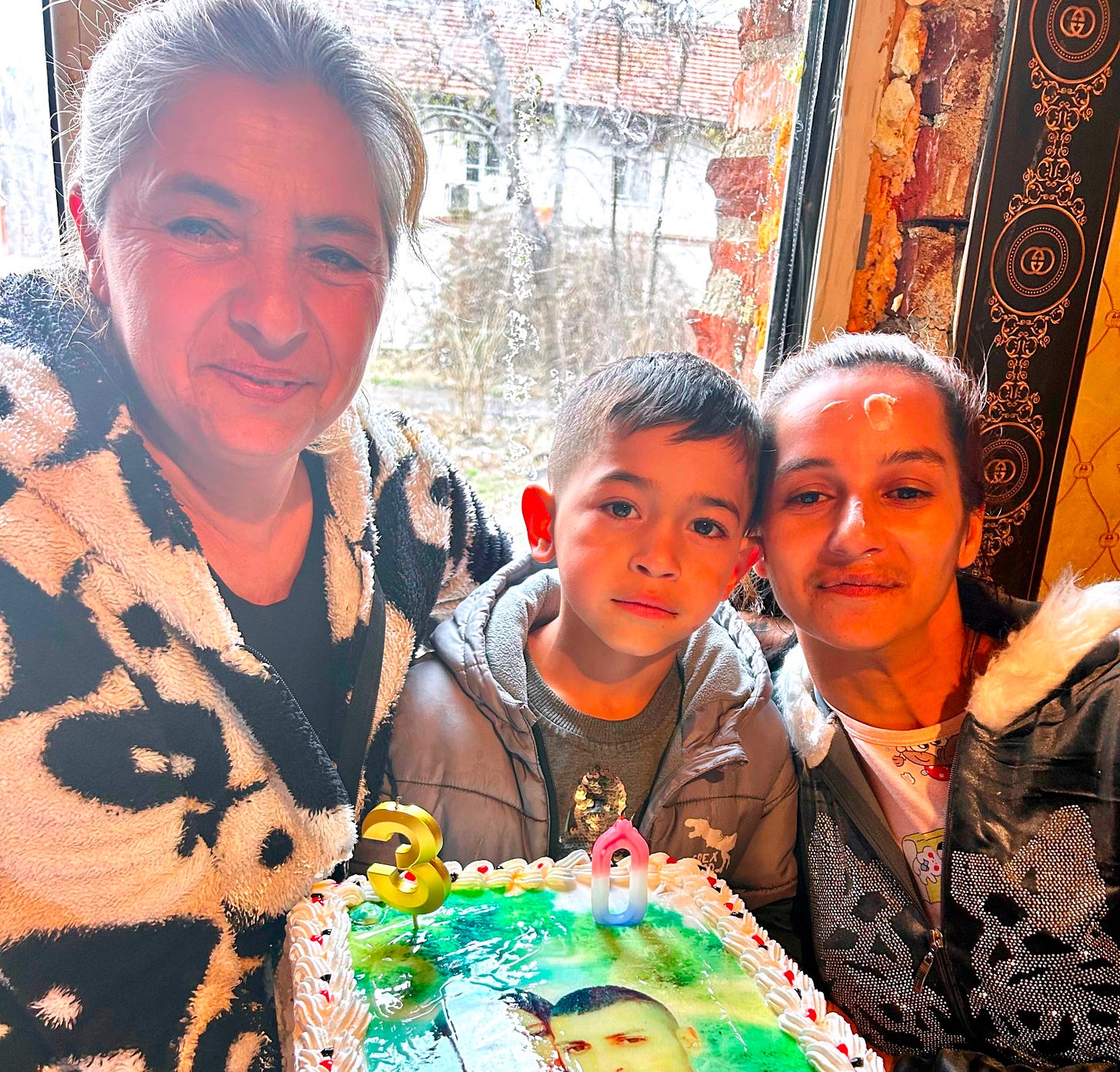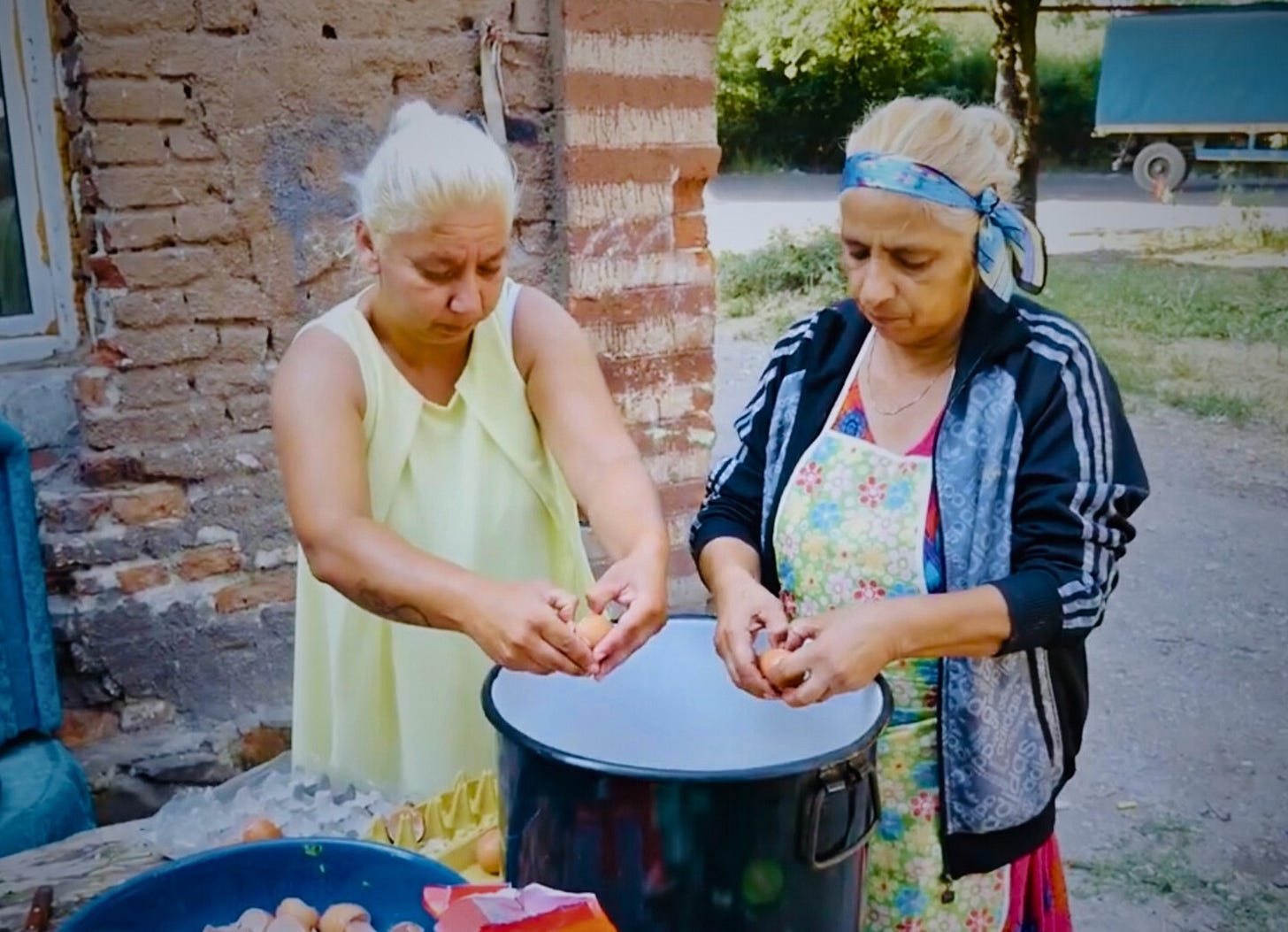
In the dead of night one time in June 2021, a group of people in our tribe attacked their cousins, living in social housing next door. There was a lot of anger behind the attack. Both groups had been collecting material for scrap and were planning to sell it together and split the profits. But it turned out that Little Pepi, his 18-year-old son, and his brother-in-law Nicky (husband to his sister Vela) were taking some of the material and selling it in secret.
The wronged cousins—men and women in equal numbers—attacked the “thieves” by barraging into their social housing rooms and hitting them with rocks. Vela was not spared, in fact she was seen as the main instigator for the theft. Her husband Nicky ended up hospitalized.
The news of this fight spread like wildfire and, within minutes, the entire tribe had descended at the scene. Police arrived soon as well.
By the morning, the surrounding white neighborhood and the mayor, who was planning to kick out 30+ Romani families from the nearby crisis center, after having demolished their houses, were keenly sharing the news of the fight as yet more proof that the Roma are savage and need to be removed.
“Did you hear about the fight?” was the mayor’s go-to response to anyone trying to challenge him on his plan to leave 30+ families on the street.
The brutal violence was seen as “typical Romani” by outsiders.
But the thing is, it was seen as brutally violent by the Roma as well. There is an entire multi-tier system of conflict resolution in Romani culture that was sidestepped in this case. The attack was spontaneous, born out of anger and betrayal, a revenge for what was seen as an infringement on livelihood in the context of extreme poverty.
“I try to go to sleep,” said Little Pepi’s wife to Martina a few weeks after the attack, “And all I see is the rock hitting my son. I will never forgive them. I will never talk to them.”
After the fight, both sides were angry. But it was also clear to both sides that a big boundary was crossed with the attack. The attackers were now squarely the ones in the wrong. So much so that this cancelled out the theft of the material and created what can be best described as social and emotional “debt”.
When a Roma admits guilt
In our previous piece, Why the Roma forgive each other the unforgivable, we told you how after this fight, everyone involved continued attending events together, like birthdays and weddings, even if staying at a healthy distance. After some time, the two matriarchs, sisters Dana and Nana, took the lead in gradually defusing the situation. Nana, the mother of Vela and Little Pepi, invited Dana to every single event, big or small, in her household. Dana, the mother of the attackers, not only attended but took charge of all preparations.
Every birthday, either a small child’s or an adult’s. A couple of weddings, with all corresponding customs. In the years since the 2021, Dana is front and center for all of Nana’s events, cutting vegetables for the salad, stirring soup, arranging plates and serving them to guests. Then she joins the table, eats, drinks, dances, and celebrates with everyone.
The clip below is from the 2024 celebration of Nicky’s birthday—Vela’s husband, the one who was hospitalized in the attack. You see him do the customary round with a box of chocolates, offering a chocolate to every guest, and receiving a birthday gift and a kiss. He starts with Todorka (sister of Nana and Dana,) then goes to his mother in law Nana, then to his own mother, then proceeds to the rest of the guests. You see, during the entire time, Dana standing right next to him, still in the apron she put on to prepare the food, helping him collect his gifts. The original clip is about five minutes long but we’re only including the first 40 seconds here. At the end of the full clip, they both go together indoors to drop off all the gifts, with Dana carrying the bulk.
Is it pure love?
Does Dana regret the fight? Is she so loving and caring because of guilt? Does she love her sister Nana’s family like she loves her own, as she is displaying with her actions?
We got together a few months after the fight, so Martina transitioned from an outside friend and observer when the fight took place to an inside guest in the months and years after it. Knowing what happened and having seen personally Vela’s bloodied face the day after the attack, Martina was stunned to witness Dana in such a prominent position during celebrations.
Pepi quickly translated the situation the first time Martina brought it up.
“Dana is responsible for the attack. She instigated it. She kept telling her sons and daughter that they need to do something about the theft, she pushed them and fueled their anger.”
Then things escalated quickly. Now everyone, especially Dana, knows that she carries responsibility for what happened even if she was not even physically present during the attack.
Nana and her household—son and daughter, son in law and daughter in law—still hold a grudge. A debt was accrued. People were wronged in a disproportionate way. The conflict resolution customs were not followed and a massive boundary was crossed.
Dana has since been working hard to repay the debt.
But the debt still stands.

The long fuse of a Romani grudge
How does the debt get called in? Who decides?
On the outside, things might look completely resolved, forgotten, and forgiven. Martina was for sure fooled when she saw all the merry celebrations with Dana in attendance. Dana would also frequently drop by at Nana’s after work, smoke a cigarette together, chat and hang out, and then leave. A strong and natural sisterly bond. One time we went to visit Nana and heard that Dana had been attacked by a street dog and was in the hospital for stitches on her leg. While we were still there, Dana returned from the hospital and her first stop was Nana. Limping, she climbed the stairs to Nana’s social housing room, sat at the windowsill, lit up a cigarette, and told us the story of the dog attack with vividness and a dash of humor. Ten minutes later, she left.
“A grudge doesn’t stop us from talking,” Pepi explains, “celebrating, living together. I can have a grudge for someone and still sit down with them, get drunk, dance, joke, cry about someone gone who we’re both missing, share my sorrows, my joys, listen to theirs.”
The grudge doesn’t prevent any of this. But also, none of it absolves the grudge. The grudge stands as a debt, until the debt gets called in.
So what does payback look like?



